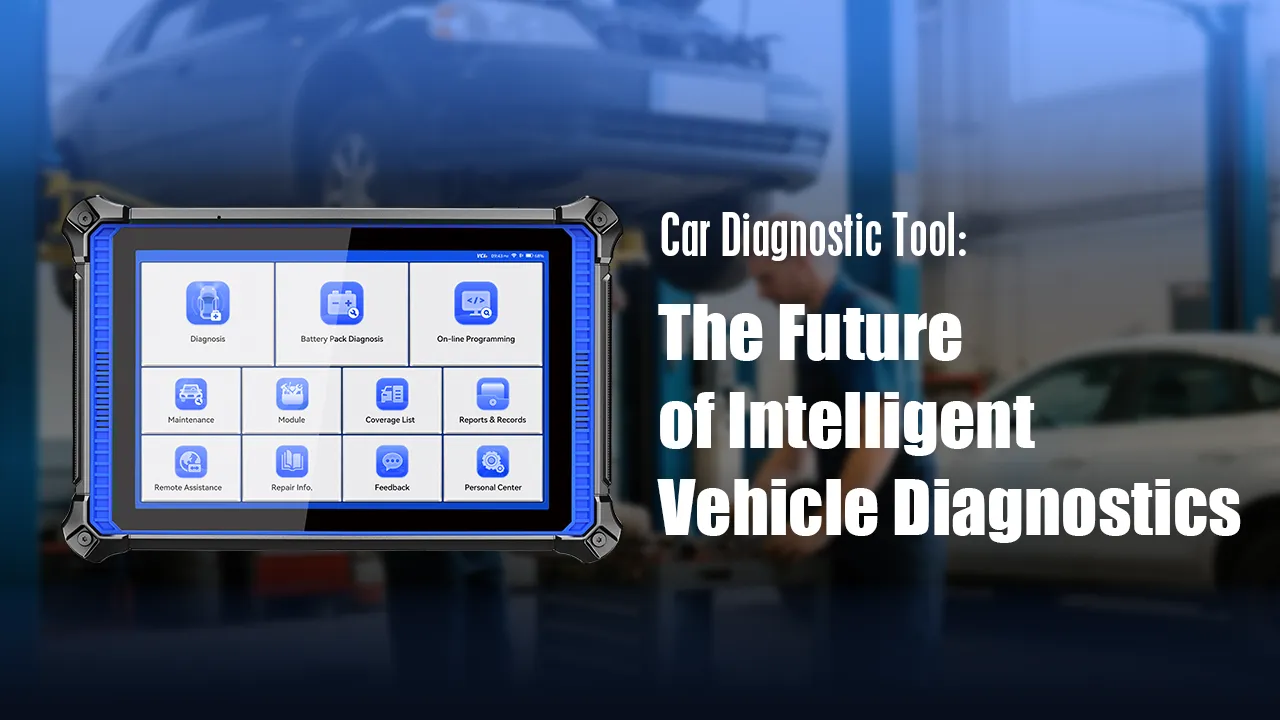Car Diagnostic Tools: The Future of Intelligent Vehicle Diagnostics
2025-11-13 by UDIAG

The Evolution of Vehicle Diagnostics
Automotive technology has advanced at an extraordinary pace, and with it, the way technicians diagnose vehicle issues has transformed dramatically. Traditional diagnostic approaches that relied heavily on manual inspection and experience are being replaced by advanced car diagnostic tools that integrate intelligent software, real-time data analysis, and wireless connectivity. These tools allow workshops to quickly identify faults, reduce downtime, and enhance repair accuracy, setting a new benchmark for efficiency and precision in vehicle servicing.
How Smart Car Diagnostic Tools Are Changing Workshops
Modern car diagnostic tools have evolved from simple code readers into comprehensive diagnostic systems capable of communicating with multiple vehicle control modules. These tools don’t just read fault codes; they provide live data streams, component actuation tests, ECU coding, and system adaptations.
Technicians now have the ability to perform in-depth analysis of critical vehicle systems such as the engine, transmission, ABS, SRS, and TPMS. Wireless interfaces and tablet-based platforms further streamline the workflow, allowing seamless mobility around the workshop. As a result, even complex diagnostic tasks that once required dealership-level equipment can now be completed with professional-grade aftermarket tools.
AI Integration and Predictive Diagnostics
Artificial intelligence is becoming a game-changer in automotive diagnostics. By analyzing historical repair data, sensor readings, and driving behavior, AI-powered car diagnostic tools can predict potential failures before they occur. This predictive approach shifts the focus from reactive repair to proactive maintenance, helping workshop owners improve customer satisfaction and reduce unexpected breakdowns.
Moreover, machine learning algorithms continuously improve fault detection accuracy over time. This means that the more data the tool processes, the smarter and more precise it becomes—transforming diagnostics from a task of interpretation to one of intelligent automation.
Connectivity and Cloud-Based Updates
The integration of cloud technology has made car diagnostic tools more powerful and versatile than ever. Instead of relying solely on pre-installed software, technicians can now access real-time updates, new vehicle databases, and remote assistance directly from the cloud. This ensures compatibility with the latest vehicle models and system protocols without the need for manual software installation.
Cloud-based platforms also enable data sharing between workshops, manufacturers, and service networks. This collective intelligence allows for faster troubleshooting, consistent repair standards, and a global exchange of diagnostic knowledge—paving the way for a truly connected automotive service ecosystem.
Why Intelligent Diagnostics Are the Future
As vehicles continue to adopt advanced driver assistance systems (ADAS), hybrid powertrains, and complex electronic networks, the need for intelligent diagnostics becomes indispensable. The X-95 Pro car diagnostic tool of the future will not only identify errors but also provide guided repair procedures, suggest optimized maintenance intervals, and integrate with digital workshop management systems.
Workshops that embrace this transformation will stay ahead of the curve, offering faster turnaround times, higher accuracy, and improved profitability. Intelligent diagnostics are not merely a trend—they are redefining how the automotive service industry operates.
FAQs About Car Diagnostic Tools
Q: What is a car diagnostic tool?
A: A car diagnostic tool is an electronic device that connects to a vehicle’s onboard computer to read and interpret fault codes, monitor sensor data, and help identify system malfunctions.
Q: How do car diagnostic tools help workshops?
A: They save time, increase repair accuracy, and enable technicians to identify issues that are not visible through physical inspection. Advanced tools also support ECU programming, coding, and system calibration.
Q: Are AI-powered diagnostic tools more accurate?
A: Yes. AI-enhanced car diagnostic tools analyze large data sets and learn from repair history, which allows them to provide more accurate fault identification and predictive maintenance insights.
Q: Do car diagnostic tools work on all vehicles?
A: Most professional diagnostic tools support a wide range of vehicle brands and models, especially those compliant with OBDII or newer communication protocols. However, specific features may vary by tool and vehicle manufacturer.
Q: What’s the future of car diagnostic tools?
A: Future tools will combine AI, cloud technology, and remote connectivity to deliver intelligent, automated diagnostics that optimize both vehicle performance and workshop efficiency.


